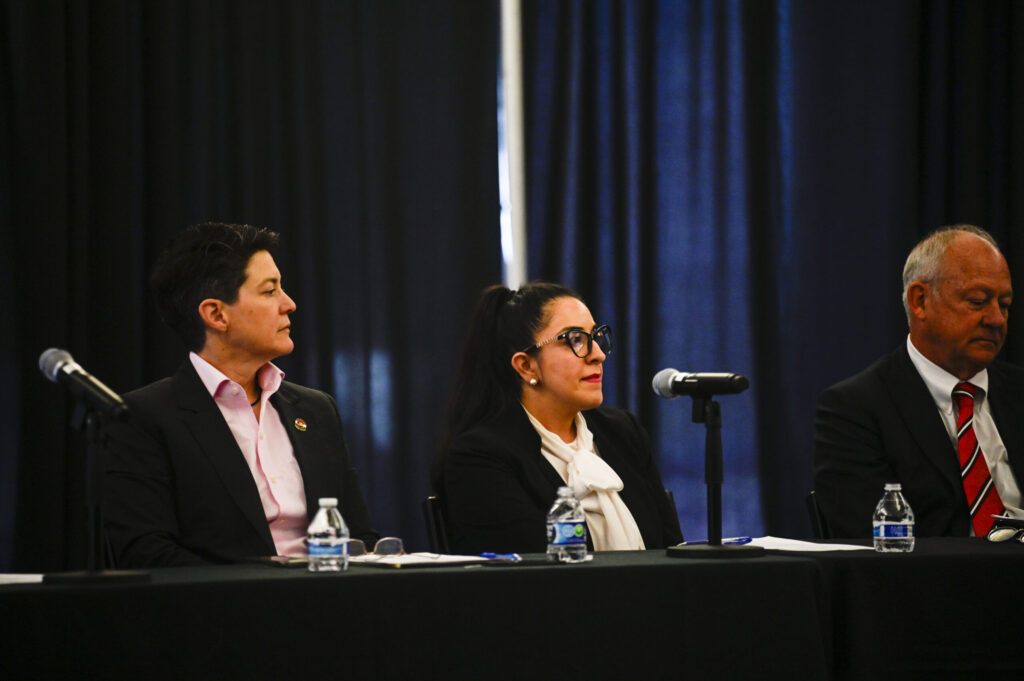Federal judge finds ‘just enough evidence’ to green-light deaf woman’s trial against Adams County sheriff

A federal judge last month agreed a jury should decide whether the Adams County sheriff violated a deaf detainee’s rights by failing to secure an American Sign Language interpreter during her 12-hour stay in the jail.
Cynthia Mullen filed suit under the Rehabilitation Act, a precursor to the Americans with Disabilities Act that protects people from being excluded on the basis of their disability from programs or activities that receive federal funding.
Mullen, who is deaf, entered the Adams County jail on the night of Aug. 24, 2020 on suspicion of domestic violence and assault. She requested an ASL interpreter, but the deputy capable of providing interpretation did not answer the jail’s call. Mullen spent the night in the medical unit and received an interpreter for the first time during her initial court appearance the following morning.
Mullen left the jail later that afternoon. The state court subsequently dismissed the charges.
In her federal lawsuit against then-Sheriff Richard Reigenborn, Mullen argued the lack of an ASL interpreter prevented her from fully participating in the booking process. She was unable to effectively communicate with jail staff and wound up sleeping in an “unsteady and rickety wheelchair overnight.”
“I couldn’t tell him I had problems with my body. I couldn’t find a way to communicate with the officer. It was frustrating,” she testified in a deposition. “My only communication was to sign, and they didn’t understand me.”
Adams County moved to end the lawsuit in favor of current Sheriff Gene Claps, who substituted for Reigenborn after taking office last year. The county acknowledged it was previously sued under the Rehabilitation Act and implemented policies to ensure ASL interpreters were available. But it argued a “one-time inadvertent failure” to provide an interpreter did not violate Mullen’s rights. Further, the jail has since moved to a 24-hour third-party interpretation service to avoid similar problems.
In a March 7 order, U.S. District Court Judge Charlotte N. Sweeney agreed it was a jury’s role to decide whether the sheriff’s office discriminated against Mullen, even if it would be an uphill climb to prove a violation.
“Here, there is just enough evidence to prevent the Court from granting summary judgment in Defendant’s favor,” Sweeney wrote. “While Plaintiff’s evidence is minimal, construing the factual record and reasonable inferences in light most favorable to her, the Court cannot conclude as a matter of law that there are no genuine fact disputes.”
Sweeney set a five-day trial to begin in June.
The case is Mullen v. Claps.














